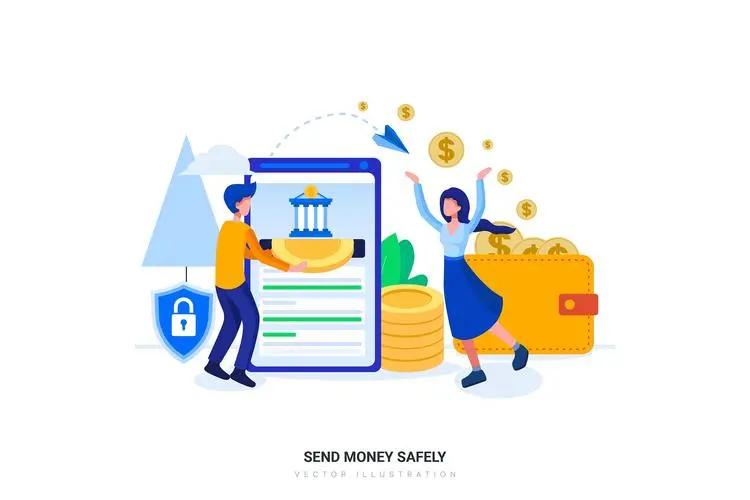Explaining FIT21 And What It Means For The Future Of Decentralization

LIKE.TG 成立于2020年,总部位于马来西亚,是首家汇集全球互联网产品,提供一站式软件产品解决方案的综合性品牌。唯一官方网站:www.like.tg
On May 22, 2024, the U.S. House of Representatives passed the Financial Innovation and Technology for the 21st Century Act (FIT21), a new bipartisan framework for the digital asset ecosystem. This act establishes clear federal requirements for the digital asset markets and clarifies the understanding of ‘decentralization’ and whether a digital asset (cryptocurrency) can be considered a digital commodity.
In the following article, I'll examine what this means for the industry and attempt to explain this act in a straightforward and digestible language free of confusing terms (I tried).
Before we begin, I want to highlight FIT21's classification of an 'affiliated person,' a single person treated under special restrictions. An affiliated person is anyone who is:
- connected to the issuer (blockchain operator) who controls, is controlled by, or is under common control with the issuer
- big stakeholder who owns more than 5% of the total supply
I will refer to an affiliated person simply as ‘person’ in the following text.
What Makes a Blockchain Decentralized According to FIT21
The fight about what is and is not decentralized has been raging for years within the Web3 community. While some consider the decentralization of nodes or miners to be sufficient proof of decentralization, others might also insist on a decentralization of assets and governance. With FIT21, there's now a direct answer to this.
If a blockchain wants to be considered decentralized, it must meet the so-called 'five prong decentralization test.' It's important to note that these prongs speak on specific time frames and not in terms of the entire existence of a specific blockchain. This means that even though a specific blockchain might have launched as fairly centralized in terms of the prongs below, it will be considered decentralized if it meets the test requirements in a specified time frame.
Prong One: No Bosses
This prong speaks about the governance aspect of blockchains in the timeframe of the past year. The first part of prong one is about governance, ensuring that no person or group can control or change the blockchain independently.
The second part of this prong says that no one can prevent others from using the blockchain however they want. This means that the blockchain must be truly permissionless and without the possibility of placing restrictions (censorship) on the following:
- using, earning, or transferring digital tokens
- creating apps or software that works with the blockchain
- participating in the governance of the blockchain
- operating a node, miner, or server that helps power the blockchain
Prong Two: No Big Owners
This one is a bit tricky, but I'll explain it. Over the past year, no person or group has owned more than 20% of tokens from the total supply, or no person or group controls more than 20% of governance votes, or lastly, the tokens themselves don't give anyone special voting rights; each token is equal and presents the same voting power as any other token in the entire supply.
Prong Three: No Major Changes Without Users' Agreement
The third prong says that in the past three months, the code must've remained stable without any significant changes made to the blockchain by a single person or group unless:
- it was to fix bugs, improve security, perform regular maintenance or
- the community agreed upon the changes
Prong Four: No Investment Pitch
No person or group promoted the tokens to the public as a way to earn profits in the past three months. While this doesn’t explicitly mention unaffiliated third parties, such as influencers, etc., there could be a potential risk of failing this prong if the group or individual promoting the token received payment from the issuer or affiliated person.
Prong Five: Tokens Created Fairly
In the past year, users must’ve created all new tokens through smart contracts, except for the original supply created at the beginning. This can be interpreted simply as the blockchain's inability to mint new tokens without user actions. Community mining through user activity is fine, but minting/mining tokens to artificially increase the supply is not.
My Final Thoughts
Personally, I believe that this new act should be warmly welcomed by the community. It underscores the importance of having a system in which no single person or group can control or manipulate the network. Ensuring that anyone can use, earn, or send tokens without having to ask for permission is crucial. It fosters innovation and inclusivity, allowing people from all walks of life to participate and benefit from blockchain technology. A decentralized blockchain prevents any single entity from restricting access or censoring transactions. This is key for maintaining the network's integrity and openness, ensuring everyone can engage with the blockchain.
Distributing control and ensuring that major changes require community consensus strengthens trust in the blockchain, and its users can be confident that the system is fair and their interests are protected.
It's refreshing to see the massive bipartisan support for this act after years of unclear and often hard-to-interpret regulations and bills. Finally, there's an act that has been written by people who properly understand the industry and care about its users.
In summary, these rules help create a truly decentralized blockchain that is open, fair, and resilient. This aligns with Satoshi Nakamoto's core principles and ideology—a future where Web3 and decentralized networks can thrive free of hidden influence or control. Let’s hope FIT21 makes it all the way to the Senate smoothly.
About Me
With over 12 years of experience in financial services, I am a commercially-minded senior Fintech and Funds lawyer specializing in helping start-ups and established companies enter new markets, acquire licenses, and launch innovative products. My recent accomplishments include:
- Launching cutting-edge products in NFT, Crypto On/Off Ramp, and Payments at Binance.
- Securing the first-ever dual MFSA Crypto licenses at Bequant, a pioneering London start-up on the blockchain island.
- Managing all aspects of 'Funds' from setup and ongoing compliance to winding down at PineBridge.
I'm passionate about collaborating with forward-thinking individuals, and I thrive on transforming traditional finance with digital technologies.
本文转载自:https://blog.ton.org/

现在关注【LIKE.TG出海指南频道】、【LIKE.TG生态链-全球资源互联社区】,即可免费领取【WhatsApp、LINE、Telegram、Twitter、ZALO云控】等获客工具试用、【住宅IP、号段筛选】等免费资源,机会难得,快来解锁更多资源,助力您的业务飞速成长!点击【联系客服】
本文由LIKE.TG编辑部转载自互联网并编辑,如有侵权影响,请联系官方客服,将为您妥善处理。
This article is republished from public internet and edited by the LIKE.TG editorial department. If there is any infringement, please contact our official customer service for proper handling.















